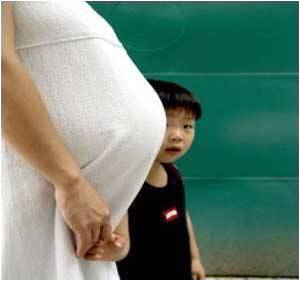Problems in childhood may result in a lifestyle that could impact pregnancy outcomes in adulthood.

Hardships faced in childhood are often associated with health behaviors later in life, which can include smoking, depression, mood and sleep disturbances, and substance use and abuse, according to background information in the article. "Mounting research evidence suggests a relation between psychosocial stressors during pregnancy and poor pregnancy outcomes, such as low birth weight, intrauterine growth retardation and preterm birth."
To reach the conclusion, Emily W. Harville, Ph.D., of Tulane University, New Orleans, and colleagues studied 4,865 women who experienced at least one hardship during childhood and had at least one live birth by age 41. "A shared limitation of past studies is that the period of investigation is limited to the pregnancy itself," the authors write. "Hypothetically, psychosocial and material hardships in childhood and adolescence may ultimately influence pregnancy outcome."
Most of the women in the study had their first child in their 20s and most had one, two or three children in their lifetime. Also, about half were current or former smokers. Childhood hardships ranged from family problems with alcohol (1 percent) to fathers not taking an interest in child's schooling (almost 30 percent), with financial problems and minor neglect, particularly from the father, as the most common.
Of the women included in the study, in their first pregnancy, 7.9 percent (385 women) gave birth to a low birth weight baby, and 7.5 (349 women) percent gave birth more than three weeks early. Overall, 5.8 percent of pregnancies resulted in a low birth weight baby, and 6.5 percent resulted in pre-term birth. Additionally, 39 percent of women had smoked at some point during their first pregnancy.
"When results were examined by timing of exposure, family structure hardships and violence/mental health hardships most strongly influenced the birth outcomes if they happened in adolescence," the authors note. "Overall, the highest risk for both low birth weight and pre-term birth was in those who had multiple hardships in adolescence only, but this was also a very small group."
Advertisement
Source-ANI















